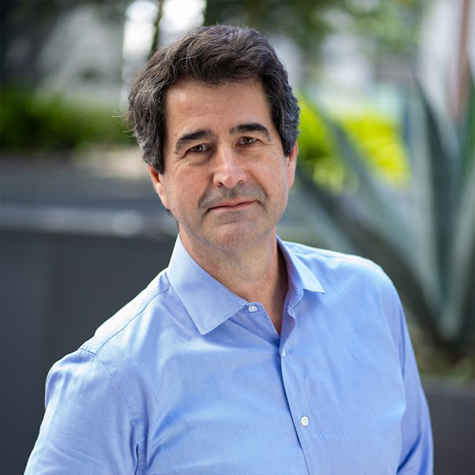On Sunday, the White House issued an “H-1B FAQ” communication that seeks to clarify the scope and applicability of the September 19, 2025 Restriction on Entry of Certain Nonimmigrant Workers proclamation that imposes a $100,000 fee on certain H-1B petitions. In addition, the United States Department of State (DOS) has provided guidance on its website on the applicability of the new fee to H-1B visa applications filed at United States consulates overseas.
The White House communication, which is consistent with earlier memoranda issued by United States Citizenship and Immigration Services (USCIS) and United States Customs and Border Protection (USCBP), states that the proclamation
Requires a $100,000 payment to accompany any new H-1B visa petitions submitted after 12:01 a.m. eastern daylight time on September 21, 2025. This includes the 2026 lottery, and any other H-1B petitions submitted after 12:01 a.m. eastern daylight time on September 21, 2025.
This statement narrows the scope of the proclamation so that the $100,000 payment applies only to “new” H-1B petitions. This can be interpreted to mean that petitions seeking an extension of stay for an H-1B worker already employed by the petitioner are not subject to the fee. This appears to be confirmed by the communication’s later statement that the proclamation
Does not change any payments or fees required to be submitted in connection with any H-1B renewals. The fee is a one-time fee on submission of a new H-1B petition.
“Renewals” presumably refers to petition extensions. This statement also clarifies that the $100,000 fee need only be paid once for every “new” H-1B petition filed by a petitioner.
It remains unclear if an H-1B petition seeking a change of employer or new employment for an H-1B beneficiary already in the United States will be considered a “new” petition subject to the fee.
Only H-1B petitions received by USCIS on or after Sunday, September 21, 2025, will require a $100,000 payment. This means that any H-1B petitions filed before this date will not be subject to the fee, even if they remain pending and have not been approved.
The communication’s reference to the “2026 lottery” is confusing, but it presumably refers to the fiscal year 2027 H-1B cap registration process, which will take place in March of next year. USCIS has already received enough H-1B petitions to reach the fiscal year 2026 cap of 65,000 H-1B visas plus 20,000 under the U.S. advanced degree exemption. These petitions were all filed before the effective date of the proclamation.
In addition, the White House communication states that the proclamation
Does not prevent any holder of a current H-1B visa from traveling in and out of the United States.
Any person who currently holds a valid H-1B visa based on an H-1B petition filed before the effective date of the proclamation should therefore be able to travel outside the United States and reenter in H-1B status without being subject to the new fee. The freedom to travel presumably also applies to Canadian citizens in H-1B status who are entering without a visa stamp. Although individuals with a previously issued valid H-1B visa stamp should be able to return to the U.S. without incurring the additional new fee, some may wish to postpone travel plans while the administration provides additional clarity regarding the legal effects and interpretation of the proclamation.
It should also be noted that the proclamation itself contains the following language:
The Secretary of Homeland Security shall restrict decisions on petitions not accompanied by a $100,000 payment for H-1B specialty occupation workers under section 101(a)(15)(H)(i)(b) of the INA, who are currently outside the United States[.]
This language appears to limit the applicability of the $100,000 fee to H-1B petitions filed for beneficiaries who are outside the United States at the time of filing. An H-1B petition seeking to employ a person who is present in the United States in H-1B status or is seeking a change of status to H-1B from another nonimmigrant status (such as F-1) should therefore not be subject to the new fee. However, because the latest guidance does not contain any reference to the physical presence of the beneficiaries, there is a possibility that the administration is seeking to expand the scope of the proclamation to “any new H-1B visa petitions,” rather than just those filed on behalf of individuals outside the United States.
DOS has also commented on the impact of the proclamation on H-1B visa applications filed at U.S. consulates. In a comment entitled Restriction on Entry of Certain Nonimmigrant Workers that appeared on its website recently, the agency confirmed that H-1B visa applications that are based on H-1B petitions filed with USCIS before the proclamation’s effective date are not subject to the $100,000 fee. The comment notes:
The Proclamation’s restrictions on visa issuance and entry apply only to aliens seeking visa issuance or entry into the United States based on H-1B petitions filed with USCIS after the Proclamation’s effective date of September 21, 2025, at 12:01 a.m. Eastern Daylight Time (EDT).
This suggests that any H-1B nonimmigrant who is a beneficiary of an H-1B petition filed before September 21, 2025, should be able to proceed with a visa appointment without fear that the $100,000 fee will be demanded at the time of the visa application or entry into the United States. Until the administration provides additional clarity regarding the legal effects and interpretation of the proclamation, however, individuals seeking to apply for an H-1B visa stamp may wish to postpone their international travel.
It is clear from the various memoranda, social media posts, and this latest White House communication that the impact of the new $100,000 fee was not fully considered and the opposition to it by the business sector was not adequately anticipated. Further statements from the administration may be issued in the coming days. In addition, it is possible that an injunction against the new fee will be sought by employers with large populations of H-1B workers and that a federal court may decide to pause the implementation of this new fee.


